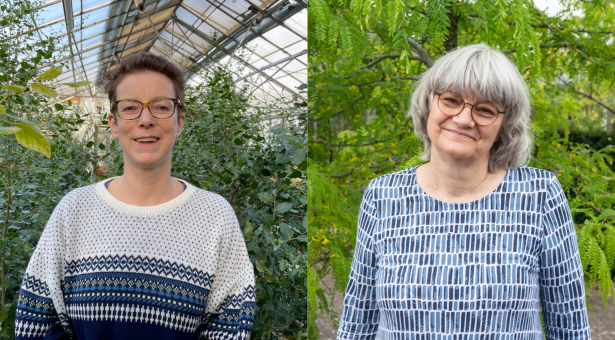
The pioneering science of Professor Cathie Martin FRS and Professor Anne Osbourn FRS has been recognised in a publication listing the world's most highly cited researchers.
Professors Martin and Osbourn appear on the Clarivate Highly Cited Researchers 2025 list which recognises researchers whose contributions have demonstrated broad and significant influence in their fields.
The accolade reflects the impact and consistent excellence achieved by both researchers in their long and distinguished careers, specifically in their influence on fellow researchers who cite them in academic publications.
Each researcher selected has authored multiple Highly Cited Papers which rank in the top 1% by citations for their field(s) and publication year in the Web of Science Core Collection over the past eleven years. However, citation activity is not the sole selection indicator. This list is then refined using other quantitative metrics, as well as qualitative analysis and expert judgment.
Professor Martin's research at the John Innes Centre focuses on improving human diet and health, emphasising biofortification and using plant metabolic engineering to enhance food nutrition.
Her inclusion in the 2025 list follows highly influential recent publications on: gene-edited vitamin-D enriched tomatoes which have just been awarded support from Innovate UK for developing biofortified, precision-bred tomato products, the commercialisation of GM purple tomatoes produced by her group, evolution of specialised metabolism and its relevance to compounds in traditional medicines, and research into the ancient legume grass pea and its potential as a climate-smart crop of the future.
The announcement comes as the Genetic Technology (Precision Breeding) Regulations go live, enacting a new framework for precision bred foods and feeds in England. This allows organisations to submit foods like the vitamin-D tomatoes to the Department for Environment, Food and Rural Affairs and the Food Standards Agency as part of a new process to bring them to market.
"It's wonderful to be acknowledged as highly cited because it means the message is getting out there about your science," said Professor Martin. "Coming at a time when the precision breeding regulations are about to take effect in England, the future looks promising for our innovations."
Professor Osbourn's research at the John Innes Centre investigates biosynthesis of plant natural products. Her discovery that the biosynthetic pathways to these products are organised in clusters in plant genomes has opened a whole new field of discovery with both medical and commercial applications.
Recent high-profile research by the Osbourn group has investigated biosynthetic pathways in the Chilean soapbark tree which produces valuable vaccine components, investigations into the biological pathway that gives crops resistance to take-all disease and research into the mining of plant genomes for triterpene discovery.
"It's always an honour to have my group's hard work and excellence recognised by the wider community," said Professor Osbourn. "It's heartening to hear that other researchers are using our discoveries to explore this fascinating and important area of science," she added.






